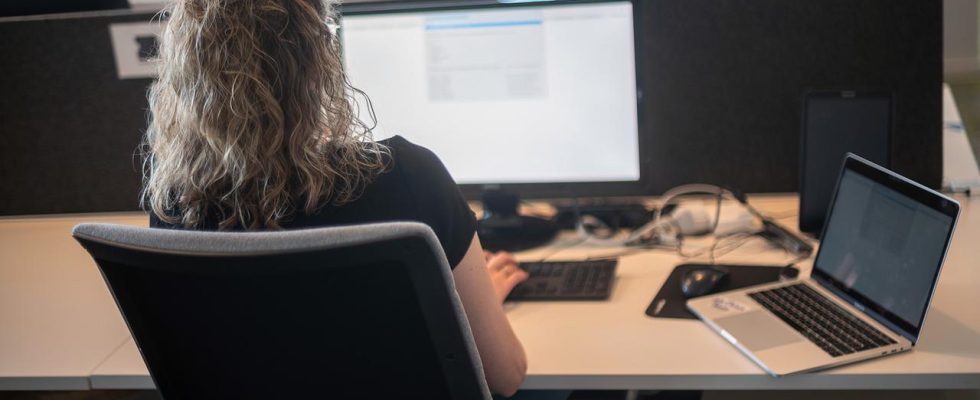background
After difficult Corona years, the start-up industry is currently recovering. In the software industry and medicine in particular, there are significantly more start-ups.
At the beginning of her medical studies, Alice Martin had no idea that she would one day found a start-up. The careers that doctors can pursue seem predetermined: work in a hospital, in research or eventually in their own practice.
But during her specialist training as a dermatologist in a clinic, she and her colleague Estefanía Lang discover a gap in medical care. People from the circle of friends and acquaintances send the two photos of their ailments and ask for a quick initial diagnosis. “We received more and more such photos as direct messages, including from strangers who did not get an appointment with the doctor in a timely manner,” says Martin.
She and her colleague quickly discover that they can diagnose most problems quickly and treat them remotely and decide to develop an app. In May 2020 they will launch Dermanostic. Since then they have carried out around 150,000 treatments via the app. 14 dermatologists work for them, full-time and part-time.
bureaucratic hurdles
During the start-up process, they not only had positive experiences. “In Germany, doctors have only been allowed to treat patients digitally for the first time since 2019,” says dermatologist Martin. “For a lot of what we do, there is still no real legal basis, in contrast to countries like Switzerland or the Netherlands. We create the law through our work, so to speak.” This also entails many bureaucratic challenges.
According to the German Start-up Association, Germany can count itself lucky if founders push through despite many hurdles. “We are the fresh cell treatment of the German economy. Putting innovations into practice quickly, breaking new ground, setting up clever business models: This is how the foundation stone for world-class technology groups is laid,” says Christian Miele, CEO of the start-up association.
1300 start-ups in six months
At least in theory. Because 2022 was not an easy year for the German start-up scene. The increase in interest rates by the European Central Bank made credit more expensive. In addition, there were disrupted supply chains and the geopolitical effects of the Russian war of aggression against Ukraine, which also caused problems for the start-up industry. The number of start-ups fell significantly in the second half of 2022.
While the number of start-ups in environmental technology and agriculture continued to decline in the first half of 2023, they are picking up again significantly in almost all other sectors – above all in the software and medical sectors. With a total of 1,300 start-ups in the first half of 2023, association leader Miele is again optimistic about the future.
It is now important that there is political tailwind for this development, for example in the form of the future financing law planned by the federal government, says Miele. After all, anyone founding a successful start-up needs qualified employees. The regulations for employee participation contained in the law are a crucial tool for start-ups to attract top talent.
“We can do that”
André Christ and his software company LeanIX from Bonn show how quickly a start-up can become a global player. He is leading the company for the twelfth year and has 540 employees. Christ and his team help international companies to get an overview of their often several thousand software applications by offering their own software that creates a kind of map.
Compared to other countries, Germany lagged behind in the start-up sector for a long time, observes Christ. “SAP was founded more than 50 years ago, and then not much happened in terms of software innovations from Germany. We can actually do that.” Christ himself came into contact with the topic of start-ups through an internship at the High-Tech Gründerfonds, among other things. He believes there should be many more programs, including at universities, to lower the threshold for starting a business.
Dermatologist Martin is also convinced that there are enough good ideas in Germany. What is often missing are contacts, a network. From Martin’s point of view, Germany would benefit from starting to create awareness among schoolchildren – for founding a company.

